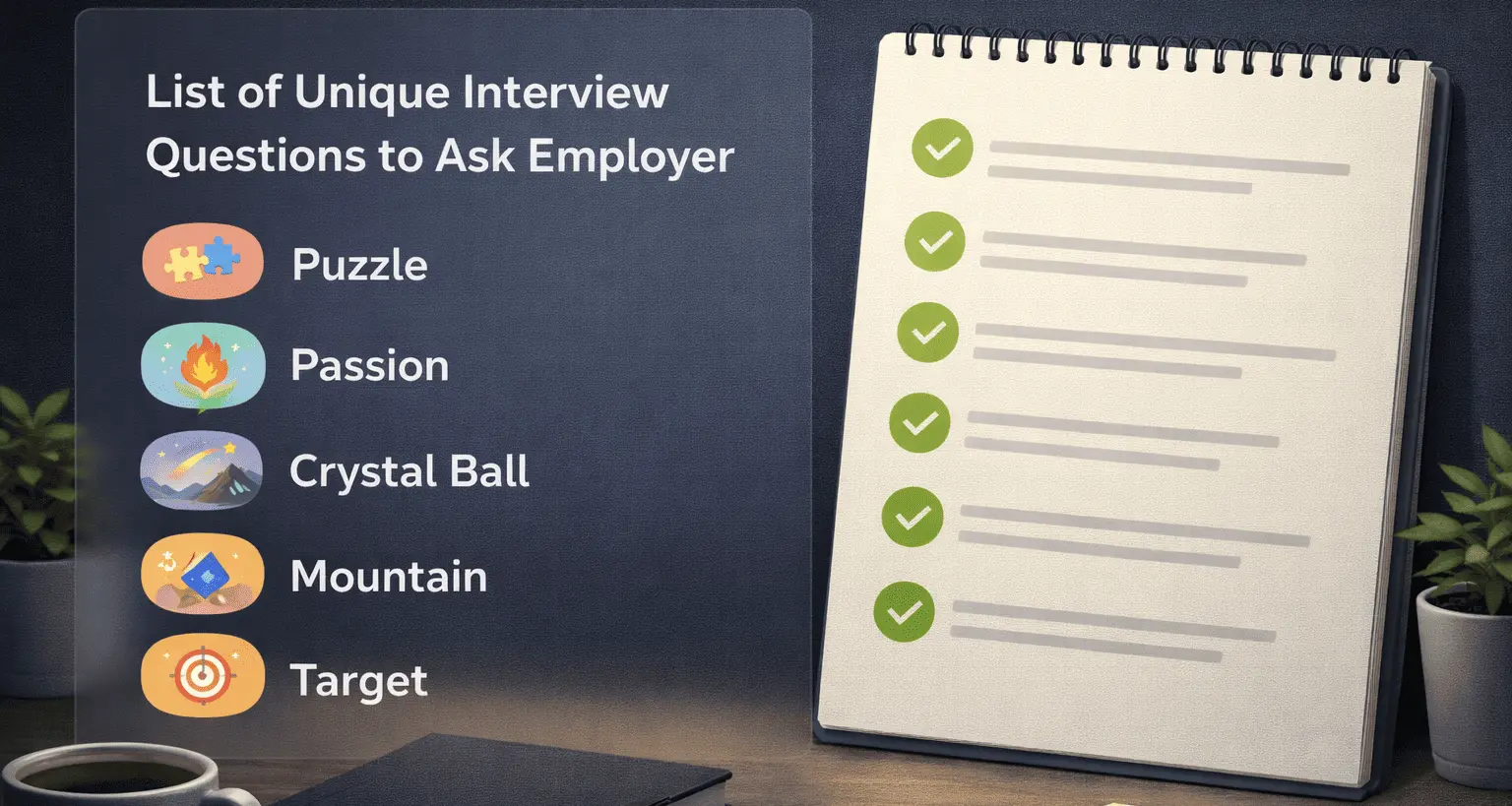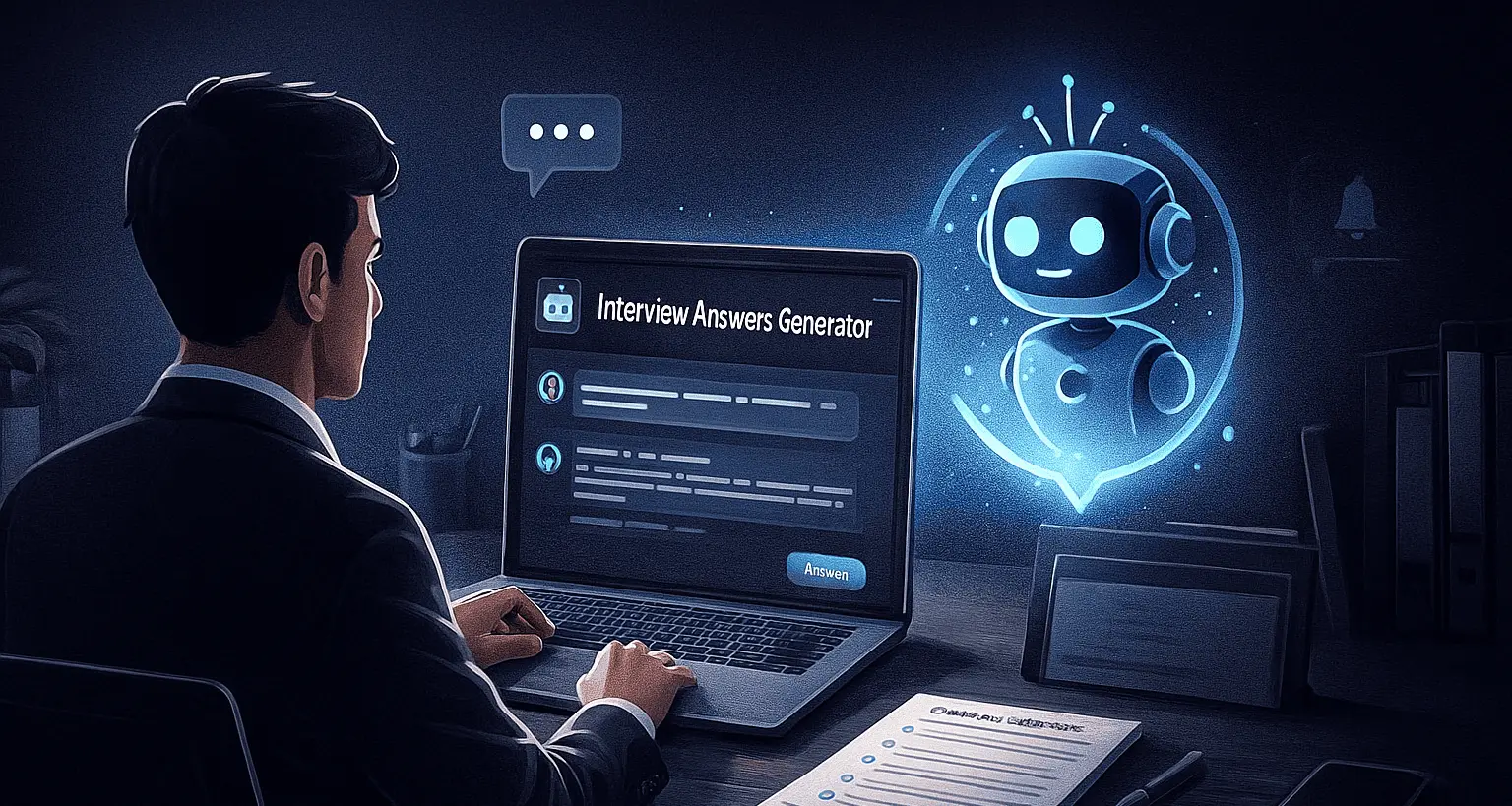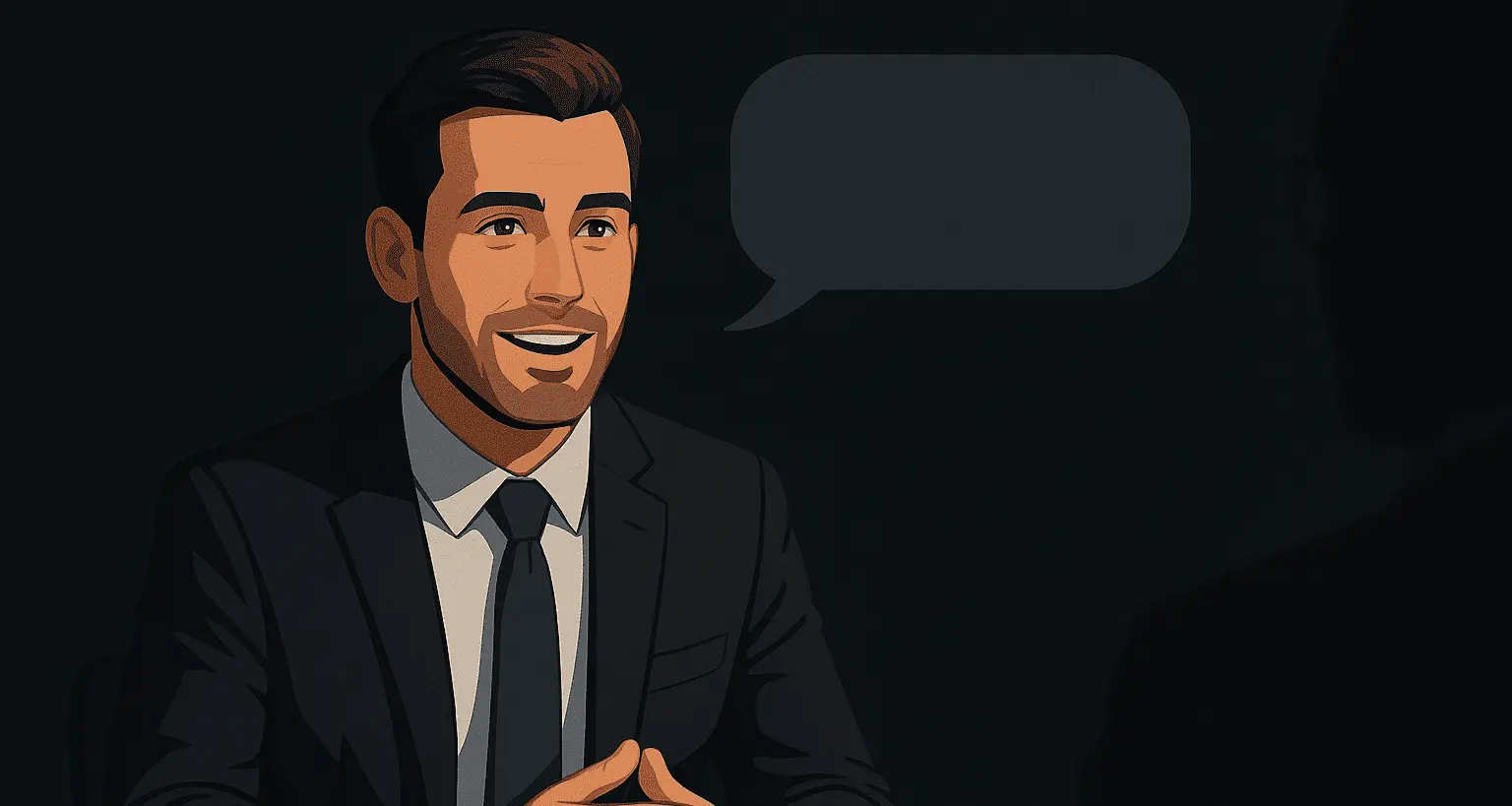Mastering the "tell me about yourself" interview question is crucial for making a strong first impression. This opening question sets the tone for your entire conversation with hiring managers. When handled strategically, it positions you as confident and thoughtful; mishandled, it can undermine your candidacy from the start.
Most candidates struggle because they either share their entire life story or robotically recite their resume. The key is crafting a concise, strategic narrative that connects your background to the specific role. This guide reveals how to structure a compelling response that captures attention, demonstrates cultural fit, and invites deeper discussion.
Why This Question Matters
Hiring managers use this question to understand your narrative beyond what's on paper. They're assessing how you prioritize information, communicate under pressure, and whether you've researched the role thoroughly.
This question reveals self-awareness too. Candidates who understand what's relevant to the position stand out immediately. Those who ramble about unrelated experiences signal they didn't prepare adequately.
The Proven Three-Part Framework
The most effective responses divide your answer into three distinct sections: your professional background, your most relevant achievements, and your genuine interest in this specific opportunity.
Part One: Your Professional Background
Start with your current role and briefly sketch your professional journey. Spend 20 seconds here. Focus on what shaped your expertise and the skills you've built. Keep it tight—interviewers have your resume.
Example: "I'm a product manager at TechCorp with four years of experience building customer-focused solutions. Before that, I worked in customer success, which taught me to identify user needs and translate them into strategic product decisions."
Part Two: Your Quantified Achievements
Highlight specific accomplishments directly aligned with the role. Use concrete metrics whenever possible. This demonstrates you deliver measurable results, not just good intentions. Spend 30–40 seconds on this section.
Example: "I've led three successful product launches, each reaching 50,000+ active users in the first month. I excel at cross-functional coordination—collaborating with engineering, design, and marketing teams. My proudest achievement was redesigning our onboarding experience, which reduced churn by 18% and became our model for user activation."
Part Three: Your Interest in This Role
Connect your experience directly to the opportunity. Spend 20 seconds here. Show you understand the company's mission and challenges. Reference a specific product, initiative, or value that resonates with you.
Example: "I'm excited about this opportunity because your product solves a real problem I've experienced firsthand. I admire your growth trajectory and your commitment to accessibility. My background in rapid prototyping and user research aligns perfectly with your roadmap."
Complete 90-Second Response
Here's how these three parts flow together as a natural, compelling response:
"I'm a product manager at TechCorp with four years of experience shipping customer-focused solutions. I began in customer success, where I learned to identify user needs and collaborate cross-functionally. I've led three major product launches, each hitting 50,000+ active users in the first month. I'm particularly proud of redesigning our onboarding—it reduced churn by 18%. I'm drawn to this opportunity because your product addresses a real challenge I've faced. I admire your growth and accessibility focus, and I believe my prototyping and research background will drive your roadmap forward."
Seven Critical Mistakes to Avoid
Don't Exceed 90 Seconds
Longer responses lose attention. Practice with a timer to develop consistent pacing and delivery.
Don't Start Too Far Back
Skip early career or irrelevant details. Hiring managers care about your last 5–7 years and future trajectory.
Don't Be Overly Personal
Authenticity matters, but keep it professional. Save personal narratives for later questions once rapport is established.
Don't Use Generic Language
Tailor each response to the specific company and role. Recycled templates are obvious to experienced interviewers.
Don't Focus Only on Responsibilities
"I managed a team" pales next to "I built a high-performing team and increased output by 30%." Lead with impact.
Don't Forget Your Story Arc
Help the interviewer see clear progression in your career and how each role built toward this opportunity.
Don't Neglect Company Research
Lack of preparation shows immediately. Know the company's recent news, products, and challenges before walking in.
Tailoring Your Answer by Career Level
Early Career (0–3 Years)
Emphasize your growth mindset and what you've learned. Highlight projects where you took initiative. Show genuine enthusiasm for development. Be honest about experience—confidence in learning matters more than false seniority claims.
Mid-Career (4–10 Years)
Balance technical achievements with leadership capabilities and strategic thinking. Show clear career progression. Explain how each role built on the previous one. Demonstrate mentorship or team development experiences.
Senior Level (10+ Years)
Focus on organizational impact and your leadership philosophy. Highlight how you approach complex problems. Show your ability to develop talent. Demonstrate strategic vision. Avoid appearing overqualified or disconnected.
Industry-Specific Response Guidelines
Tech and Product Roles
Lead with shipping velocity, metrics, and cross-functional impact. Use specific numbers for user adoption, revenue, or retention gains.
Finance and Consulting
Emphasize analytical methodology, problem-solving rigor, and client value. Highlight strategic projects where your insights drove decisions.
Sales and Marketing
Lead with metrics—revenue targets, pipeline growth, market expansion. Show relationship-building and outcome-driven capabilities.
Operations and HR
Highlight process improvements, cost savings, and scaling capabilities. Demonstrate improved team performance and organizational efficiency.
Preparation and Practice Methods
- Record yourself: Notice pacing, filler words, and tone. You'll hear patterns inaudible when speaking naturally.
- Practice aloud: Silent reading masks awkward phrasing and timing problems that speech reveals.
- Try mock interviews: Real-time feedback builds authenticity and reduces interview day anxiety.
- Seek peer feedback: Ask colleagues if your answer sounds compelling and genuine.
- Customize per company: Keep your core narrative consistent while adjusting the final section for each role.
Recovering If You Stumble
If you lose your train of thought, pause and refocus. Say: "Let me back up and focus on what matters most for this role." Interviewers respect self-awareness and course correction over flawless performance.
If you're addressing a career gap or transition, acknowledge it directly in your answer. Honesty builds trust more effectively than avoidance.
Why This Question Opens Doors
"Tell me about yourself" isn't a trap—it's your opportunity to take control. You shape the narrative. You decide what matters about your background and how you connect to this specific role. Strategic, specific answers that demonstrate genuine interest elevate you above other candidates.
Compelling responses feel natural, not scripted. They're anchored in real results. They respect the interviewer's time. They leave natural openings for deeper conversation.
Own Your Story
Invest time crafting a response that feels authentic while clearly connecting your background to the role. Practice until delivery feels natural. Customize thoughtfully for each company. Remember: the goal isn't perfection—it's clarity, confidence, and genuine enthusiasm.
When you master this opening question, the entire interview flows more smoothly. You've established credibility, demonstrated self-awareness, and shown you take the opportunity seriously. That foundation makes everything that follows feel like an engaging conversation rather than an interrogation.







